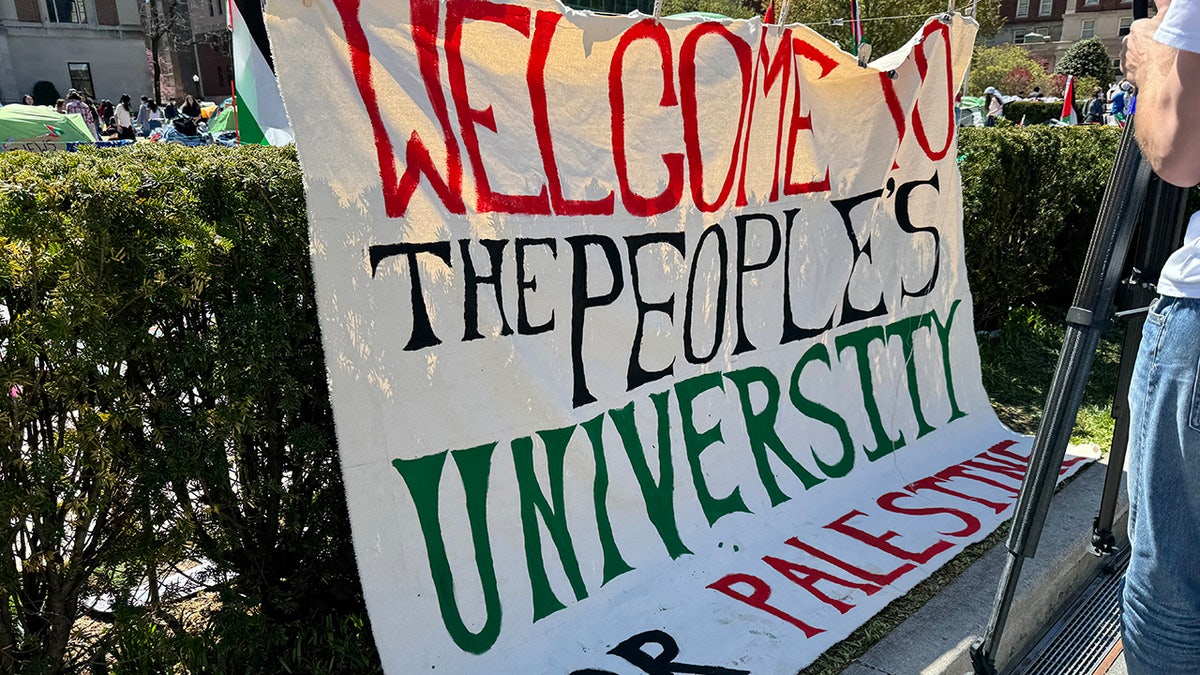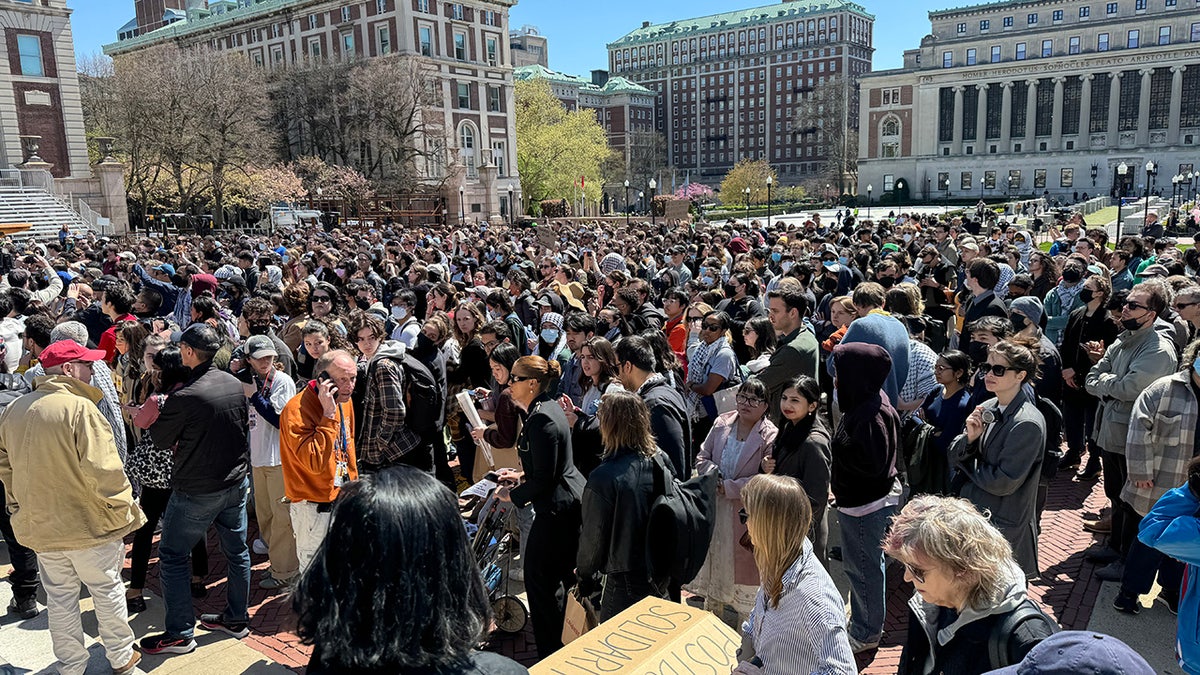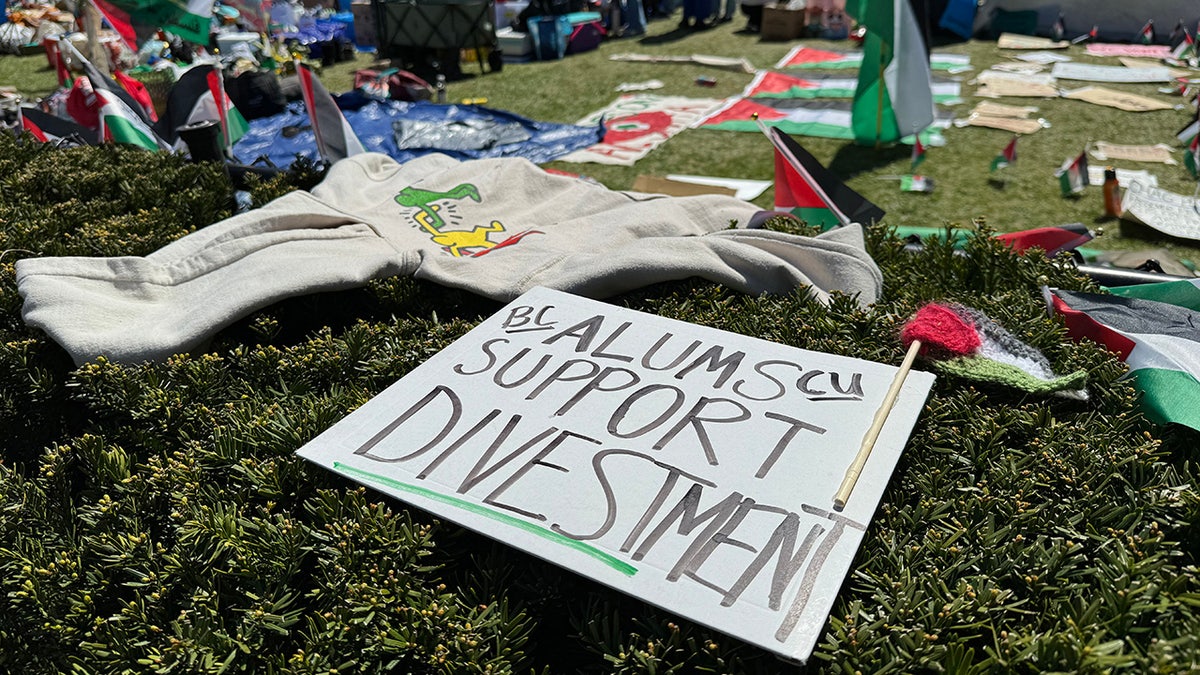Ex-Columbia law professor says it will be tough for Jewish students to file class action lawsuit
Attorney Danny Karon, who taught at Columbia Law School, feels the school ‘unwittingly’ came across a strong defense against class action law suits.
Columbia University may have fended off the threat of class action lawsuits this week when it announced classes have shifted to virtual or hybrid amid ongoing safety concerns stemming from anti-Israel protests, according to a former law professor at the embattled school.
Attorney Danny Karon, who used to teach at Columbia Law School and specializes in class action suits, felt Jewish students might have had a case earlier this week. Rabbi Elie Buechler advised them to leave campus and go home as anti-Israel agitators made it unsafe. The university’s policies insist it is committed to providing learning, living and working environments free from harassment. But then new guidelines said all courses on Columbia’s main campus moved to hybrid learning "until the end of each school’s Spring 2024 semester" in an effort to keep students safe.
"I don't think it was pretextual, I think Columbia did the right thing to preserve the safety of its kids. But with that unwittingly came a real good class defense," Karon told Fox News Digital.
COLUMBIA UNIVERSITY MOVES TO HYBRID LEARNING ON MAIN CAMPUS AMID ANTISEMITIC PROTESTS

Anti-Israel agitators construct an encampment on Columbia University’s campus in New York City on Monday, April 22, 2024. (Peter Gerber)
"It would have been easier for the Jewish kids, or even Arab kids who feel harassed, or anyone else who felt harassed to have a class [action case] if the school didn't lump everybody else in with them," he continued. "Because then you would know that everybody who was at home studying was there because they felt harassed, and there'd be no question as to whether they felt aggrieved. They did. How do you know? Because they left campus. That is a definable class."
Karon spent 13 years as the chair of the American Bar Association National Institute on Class Actions. Now that everyone was sent home from Columbia, he said it’s essentially impossible to know who felt harassed and wanted to flee, as opposed to students who weren’t impacted or are "perfectly fine" with remote learning either way.
"Now that the school has made it a school-wide approach that might unwittingly, unknowing to the school, have been enough to scuttle the possibility of a class action. Or maybe a resourceful plaintiffs’ lawyer, if retained by the right, perhaps harassed Jewish Arab students, could claim a class of just harassed students. How they would demonstrate who those were could be a challenge," Karon said.
COLUMBIA UNIVERSITY ANTI-ISRAEL PROTESTERS: 5 DRAMATIC MOMENTS FROM A WEEK OF CHAOS

Anti-Israel agitators gather on Columbia University’s campus in New York City on Monday, April 22, 2024. (Peter Gerber)

Anti-Israel agitators construct an encampment on Columbia University’s campus in New York City on Monday, April 22, 2024. (Peter Gerber)
"Might it be a definable class and ascertainable class, as we call it? Possibly. But this step isn't easy. If it were easy, everybody would do it. And these class actions are necessarily difficult, and it's necessarily tough to show that cohesiveness among a group of folks who then necessarily has people who feel different ways," he continued. "And that's, I think, what we're seeing in some respects here in a way that didn't exist before the school invoked this new policy."
Karon, who taught at Columbia Law School in 2018-2019 and has also taught class-action litigation at the University of Michigan Law School and The Ohio State University Moritz College of Law, loved his time at the Manhattan-based Ivy League school and is stunned by recent events.
"I never saw antisemitism anywhere. I saw inclusiveness and cooperativeness. And, it was just a great vibe. I never saw any of this. It's really sad that now it's sweeping the campus," he said.
"I would walk through campus and it was so serene and so wonderful and such a great image, and now it's just peppered with all this negativity and sadness and tumult in a way that the school can't get a handle on," Karon continued. "I think it's really sad what's happening."
The new guidance came amid days of protests at Columbia, where anti-Israel agitators initially formed an encampment — setting up tents and refusing to leave — on the campus. The protesters have marched in and around the campus demanding the school lose affiliations with groups that support Israel amid its war with Hamas in Gaza, which has resulted in tens of thousands of civilian deaths.
House Speaker Mike Johnson, R-La., suggested Wednesday that the National Guard should be called in to quell the Gaza cease-fire protests at Columbia University if they don't peter out themselves.
Columbia University President Dr. Nemat "Minouche" Shafik previously said in a statement that she was "deeply saddened" by certain actions of the agitators and called for a "reset."
"I am deeply saddened by what is happening on our campus," Shafik wrote. "Our bonds as a community have been severely tested in ways that will take a great deal of time and effort to reaffirm. Students across an array of communities have conveyed fears for their safety and we have announced additional actions we are taking to address security concerns. The decibel of our disagreements has only increased in recent days. These tensions have been exploited and amplified by individuals who are not affiliated with Columbia who have come to campus to pursue their own agendas."
CLICK HERE TO GET THE FOX NEWS APP
Fox News Digital’s Lawrence Richard, Jeffrey Clark and Danielle Wallace contributed to this report.





















